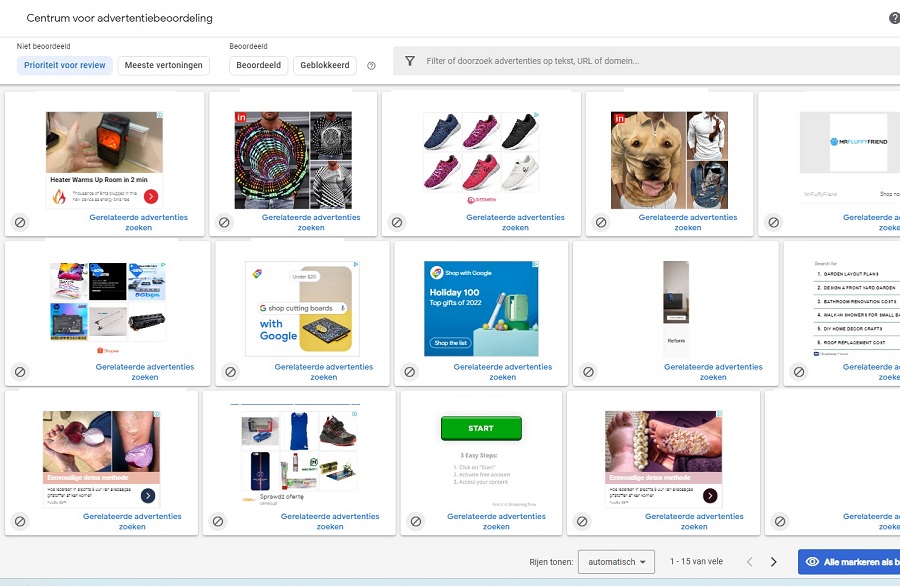What percentage of Internet surfers block ads?
Ads are extremely well-known on every form of media, no matter how you look at it, an ad makes it possible for many a newspaper, TV program, website and sporting event to make revenue and pay fixed expenses. Advertisements have been a fixture on many a website since the beginning of the Internet. Many a user would prefer to use a service without Ads, hence the success of services such as Netflix, Disney Plus or Amazon Primevideo. In this blog post, let's explore how ads are perceived and how you as a website owner can best deal with this.
Are ads bad?
Ads don't always have to be seen negatively, it's also simply a reality that ads are here to stay and you're going to be exposed to them one way or another. Some ads can also be seen as useful, if you are looking for a new washing machine for example then you will also be offered alternatives in other places and media such as Social Media. Here you can then be helped further in your choice. However, there are also ads that can only be perceived as annoying or inappropriate, as a website owner you can do your best to filter such ads and select within your ad network which categories and websites you want to have advertised on your website.
For the user
So for the user, ads are a knife that cuts both ways in most cases, you can see this as a pleasant experience when you see, for example, a nice offer for a vacation park on a travel website. Or you can see this as an invasion of your privacy. What you yourself think of this is otherwise solely up to you.
With personalized ads from Google's ad network, in most cases ads are not inappropriate, but they do use your search and surfing behavior to determine which ads are most appropriate for you. So in this the trade-off is for yourself to make, and decide if you don't want to support any website with ad views by using an ad blocker. Remember, however, that nothing is for free, and website owners whose content you love to read also need to make ends meet and be motivated to continue.
For the website owner
As a website owner you obviously want to get an appropriate and pleasant income from your website, only websites that you set up with a low time investment and fill with ads from everyone is often an approach that does not deliver the best results in the long run. Therefore, it is often better to carefully consider which categories and types of ads you serve on your website. You can specify and force this in almost any ad network. As with the most widely used, Google AdSense, under the heading Brand Safety -> Center for Ad Review. See the cover image of this blog post to see what kind of ads might appear, for example.
What percentage of Internet users block ads in the Netherlands?
In the Netherlands, the estimated percentage is 33.6% of all Internet users who block ads. So says Backlinko who wrote an extensive article about this, with the original source being Hootsuite who conducted research on this. So this is quite a large percentage that is using ad blockers in the browser, or for example using a browser like Brave or Firefox with U block.
What can you do about it as a website owner?
As a website owner, you cannot directly influence whether or not your users use an ad blocker. However, there are a number of alternatives available, or notifications to display to ad blocker users. However, this can also result in a negative user experience. And so is for yourself as a website owner to decide if this is worth it.
Pop up for asking for ad blocker deactivation
This is one of the most common tactics used to persuade users to disable the adblocker, showing a pop up asking them to disable it. Often this is combined with persuading them to do so by offering a bait or bonus. Or instead giving the option to become a member of the website or donate. However, this can also cause a large portion of dropouts, and thus needs to be addressed appropriately.
Enabling donations
Donations are a way for many to make website hosting possible, the biggest example in this is of course Wikipedia. However, the reality is often that there needs to be an emotional reason behind it, or a certain level of popularity for it to be relied upon. It is often the case that this requires hundreds of thousands of users to make ends meet. And so that can be quite a challenge for many people with their websites to get into this. Donations are further possible to implement on your website through PayPal, Buymeacoffee, or Patreon.
Try other ways of generating income
There are of course other ways to make money from your website, with certain things you can turn an entire article into an advertisement. For example, by approaching companies directly. Or links can be made to other parties and products. This is then often called lead marketing or affiliate marketing. In which you can thus redirect your visitors to another party.
On the other hand, you can also start looking at launching your own products or services, with this you can attract customers to your own service. This is often done by offering a course, book or coaching on the subject your website is about.
What do you think about ads as a user or website owner? Let us know via Social Media!
